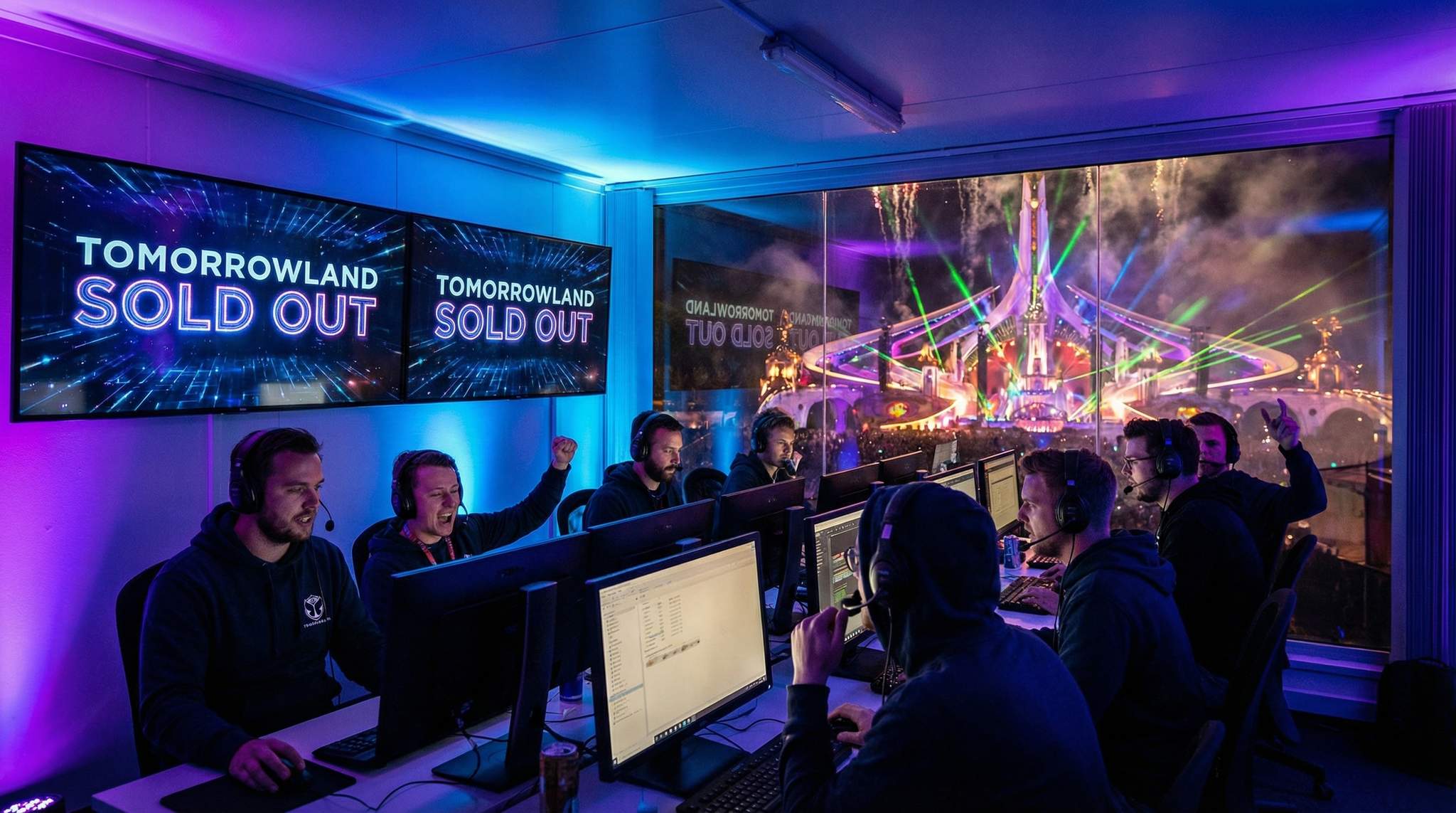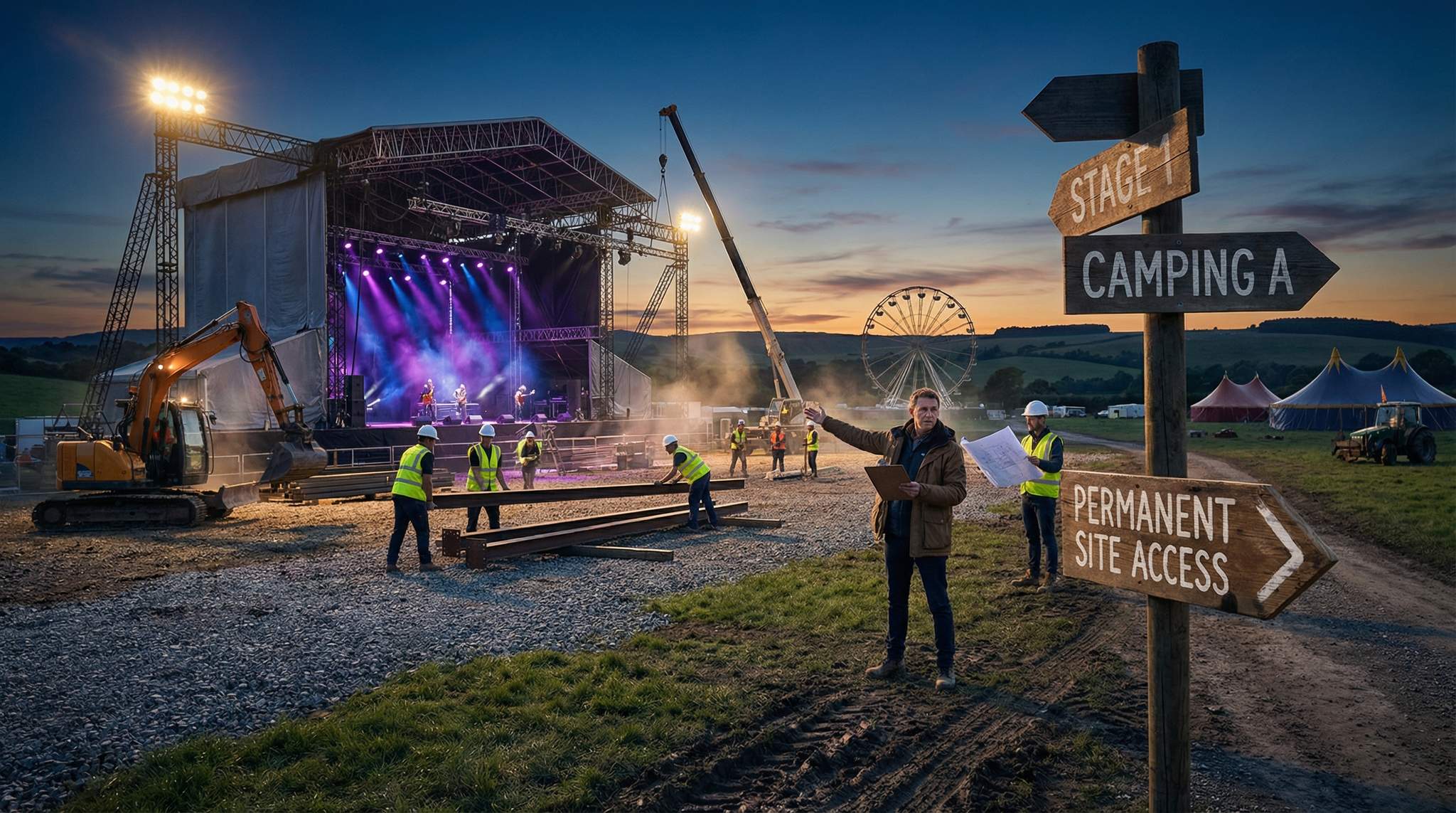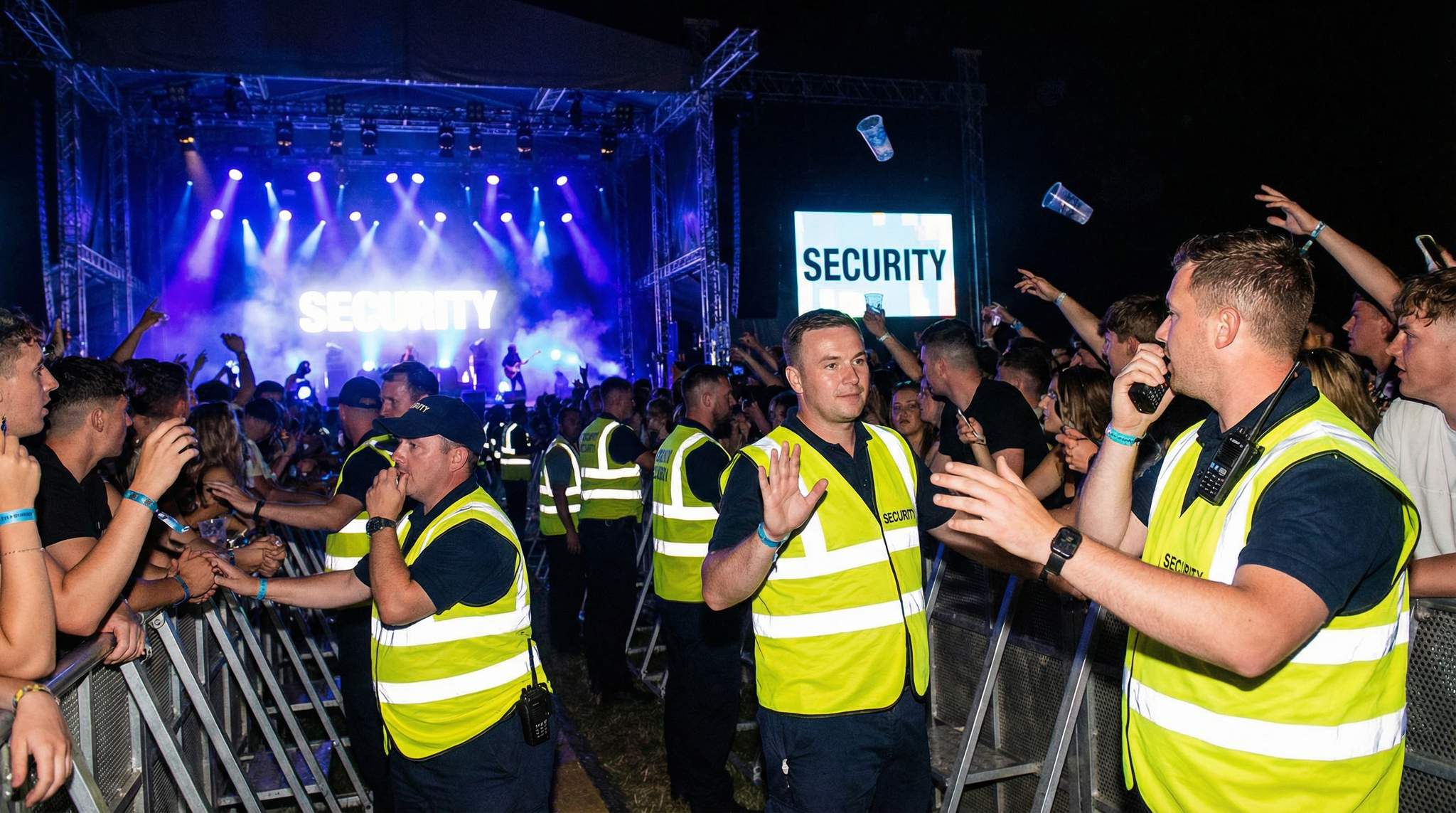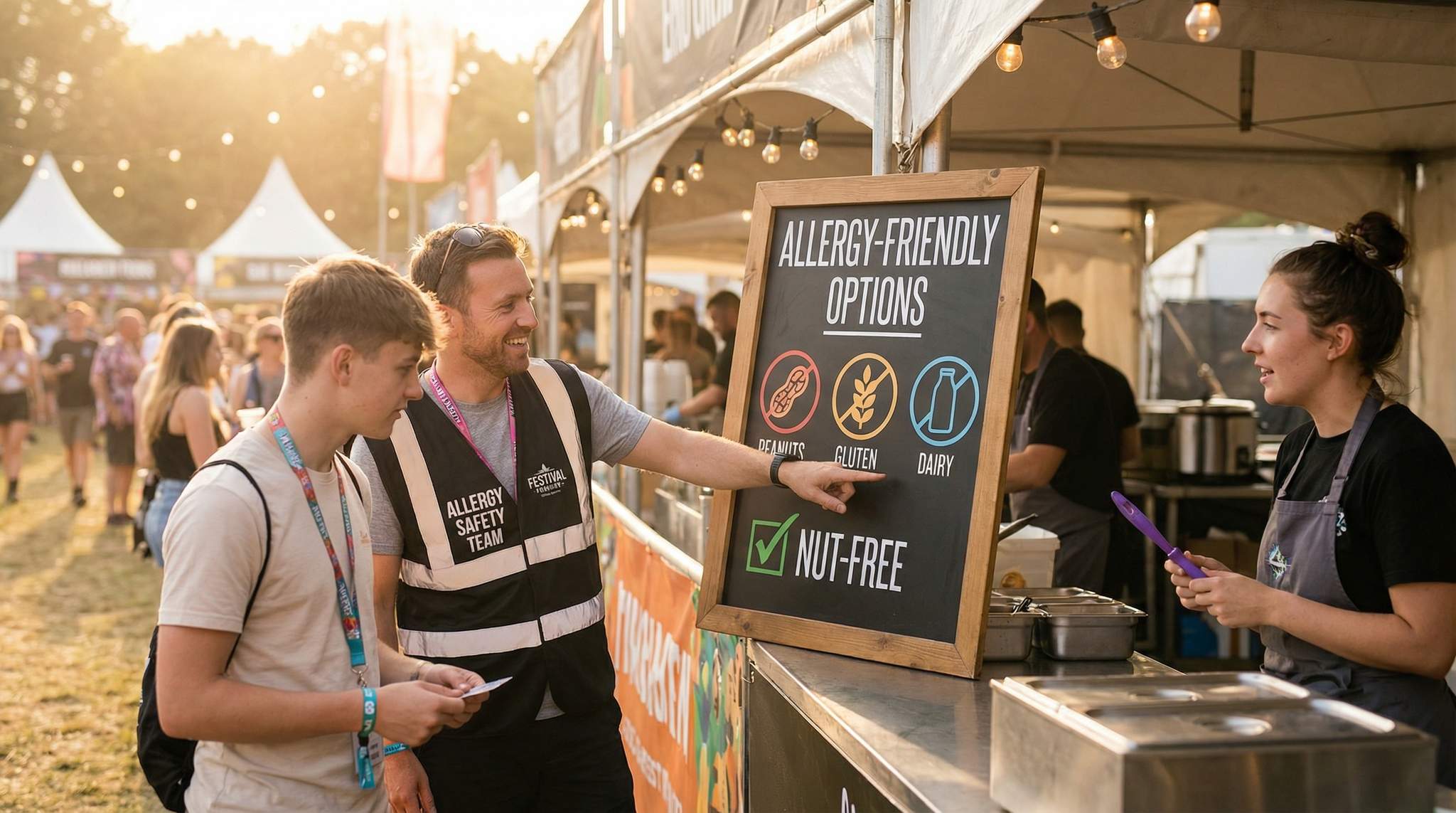Overview: Tomorrowland, one of the world’s most renowned electronic dance music festivals, has become synonymous with selling out at lightning speed. Tickets for Tomorrowland often vanish within minutes of release – in some years, hundreds of thousands of passes have been snapped up in under an hour. This case study examines the marketing strategies behind such a rapid sell-out phenomenon. By dissecting Tomorrowland’s approach to brand building, hype generation, and community engagement, we can extract valuable lessons and tactics for festival promoters aiming to replicate this level of success.
Brand Loyalty and Trust Built Over Years
An essential factor behind Tomorrowland’s instant sell-outs is the brand loyalty it has cultivated over many years. The festival consistently delivers spectacular experiences – from jaw-dropping stage designs to top-tier artist lineups – which has earned the trust of attendees. Fans know that a Tomorrowland ticket guarantees an unforgettable experience, so they are willing to purchase passes even before details like the full lineup are revealed. This reputation took time to build; year after year of positive attendee buzz and media coverage has elevated Tomorrowland to a “bucket list” event. The result is a dedicated fan base that will rush to buy tickets the moment they are available, confident that the festival will live up to its name.
Other major festivals similarly benefit from this earned trust. For example, Glastonbury Festival in England routinely sells out within minutes despite not announcing its lineup until after tickets are gone – a testament to the power of a strong festival brand. In Tomorrowland’s case, the organizers have carefully maintained quality and consistency, ensuring that attendees share glowing reviews and stories. This word-of-mouth marketing strengthens the festival’s reputation and feeds a cycle: strong events create loyal fans, who then drive faster ticket sales in subsequent years.
Teaser Campaigns and Year-Round Hype
Another key to Tomorrowland’s rapid sell-out success is its masterful use of teaser campaigns and year-round engagement. The marketing team doesn’t wait until just before tickets go on sale to generate excitement – they keep fans intrigued throughout the year. One of Tomorrowland’s signature tactics is the release of an official aftermovie a few weeks after each edition. These high-production recap videos, filled with highlights of performances and crowd moments, often garner millions of views online. Each aftermovie serves as both a nostalgia trip for attendees and an alluring advertisement for those who missed out, planting the seed early that “you must be there next time.”
In the months leading up to ticket sales, Tomorrowland rolls out a steady stream of content to build anticipation. They unveil an annual festival theme with a cinematic trailer that sparks curiosity (for instance, mysterious storylines like “The Book of Wisdom” or “The Story of Planaxis”). They also slowly drip-feed artist lineup announcements and stage highlights on social media, keeping the festival constantly in conversations. By the time the on-sale date arrives, millions of fans have been engaged by these teasers and are primed to purchase. This strategy of sustained hype – through video content, social posts, email newsletters, and press coverage – ensures that demand reaches a fever pitch when tickets finally become available.
FOMO and the Hype of Exclusivity
Tomorrowland’s marketing leverages the psychology of FOMO (Fear of Missing Out) to great effect. Simply put, the festival has made its tickets feel like golden tickets. Because the event is so acclaimed and not everyone who wants to attend can get a ticket, those who manage to snag one feel like they’ve gained access to an exclusive world. This sense of exclusivity is amplified when tickets sell out in minutes; it becomes headline news that “Tomorrowland tickets are gone almost instantly.” Such buzz not only reinforces the festival’s coveted status, but also creates FOMO in those who weren’t quick enough or are hearing about the festival for the first time.
Planning a Festival?
Ticket Fairy's festival ticketing platform handles multi-day passes, RFID wristbands, and complex festival operations.
The organizers carefully cultivate this limited-supply hype. Tomorrowland’s capacity is large (tens of thousands of attendees per day, expanded to two full weekends in recent years), yet demand far exceeds supply. Rather than drastically increasing capacity every year, the festival maintains a degree of scarcity, which keeps excitement high. Marketing messaging often subtly reminds fans that tickets are extremely limited. When combined with the festival’s legendary appeal, this drives prospective attendees into a frenzy to secure a spot. Additionally, the tradition of launching ticket sales on a specific announced date and time turns the purchase process into an event in itself – thousands of people around the world sit ready at their computers, not wanting to miss their brief chance to be part of the experience.
Community Building and Global Reach
A standout aspect of Tomorrowland’s success is the global community it has built. From the beginning, the festival welcomed attendees from dozens of countries, and it actively celebrates this international spirit. Marketing materials often show a sea of flags from around the world being waved in the crowd. Over time, Tomorrowland has fostered a tribe of loyal fans known as the “People of Tomorrow.” This isn’t just a tagline – it reflects a conscious effort to make attendees feel like they’re part of a larger family or movement.
The festival’s community-building efforts include interactive online platforms, social media groups, and even spin-off events that engage fans year-round. Tomorrowland’s global reach has been extended by initiatives like Tomorrowland Unite (live satellite events in multiple countries) and Tomorrowland Winter (a spinoff festival in the French Alps), which help maintain engagement beyond the main event in Belgium. Fans who attend or even just follow these events often become informal ambassadors, sharing their experiences and spreading excitement in their home countries. This worldwide network of passionate fans means that when tickets go on sale, the demand isn’t limited to one region – it’s a coordinated rush from a global audience. International fan communities on forums and social media also play a big role, swapping tips on how to get tickets and hyping each other up as the sale date nears. The sense of camaraderie and collective enthusiasm around Tomorrowland reinforces its status as a can’t-miss event, helping to drive those swift sell-outs.
Smooth Ticketing and Preparedness for Demand
All the marketing genius in the world can backfire if fans have a poor experience when trying to buy tickets. Tomorrowland’s team understands this and places enormous emphasis on ensuring a smooth ticket buying process despite the overwhelming demand. First, the festival requires hopeful attendees to pre-register prior to the ticket sale. This accomplishes two things: it builds a database of interested fans (useful for gauging demand and marketing updates), and it adds a layer of commitment that makes the hype feel more serious. Millions of people pre-register each year, generating a buzz of its own as fans proudly announce “I’ve registered for Tomorrowland tickets!”
When the sale time arrives, Tomorrowland uses a robust online ticketing system capable of handling high traffic loads. They employ virtual waiting rooms/queues and have servers scaled to manage hundreds of thousands of simultaneous users. While no system is perfect (and fans will always experience some nerves and bottlenecks in a sale this popular), the organizers continually refine the process to make it as fair and frustration-free as possible. For example, tickets may be sold in batches or waves to avoid a single overwhelming surge, and the website provides clear instructions and updates in real time to keep customers informed.
Another tactic Tomorrowland uses is segmenting ticket sales into categories – such as a pre-sale for local residents, global travel package sales, and general worldwide sale – which helps manage the demand in stages. By doing this, they avoid a scenario where absolutely everyone is vying for the exact same pool of tickets at once, and they can address specific groups (like locals or international travelers) with tailored offerings. The key takeaway is that technical preparation and user experience play a crucial role in marketing: a fast sell-out is a positive thing only if fans attribute it to the event’s popularity, not to a failure in the ticketing system. Tomorrowland’s ability to handle its high demand reinforces fans’ trust, turning the ticket-buying ordeal into part of the lore rather than a sour note.
Need Festival Funding?
Get the capital you need to book headliners, secure venues, and scale your festival production.
Key Marketing Lessons and Tactics
The unprecedented sell-out speed of Tomorrowland is the result of multiple well-executed marketing and operational strategies. Here are some key lessons and tactics that festival producers of any scale can draw from this success story:
- Build an Authentic Brand: Deliver quality experiences consistently so that your festival’s name becomes synonymous with something people love and trust. A strong brand reputation will have attendees eager to buy tickets on reputation alone, year after year.
- Engage Year-Round: Don’t disappear between events. Use content like videos, photos, and updates to keep your community engaged throughout the off-season. Consistent engagement, such as Tomorrowland’s aftermovies and theme teasers, keeps the excitement alive and maintains your event at the top of fans’ minds.
- Leverage Teaser Campaigns: Plan a marketing timeline that gradually builds momentum. Reveal themes, artists, or special features in stages to generate continuous buzz. Teaser campaigns create anticipation and make the eventual ticket sale feel like the climax of a much-followed story.
- Create FOMO through Exclusivity: It’s okay for a festival to be a bit “hard to get.” While you never want to alienate fans, emphasizing that tickets are limited and selling out fast (and backing that up by actually selling out) drives home the message that your event is in high demand. Showcase unique aspects of the festival that attendees can’t experience elsewhere to reinforce that “you had to be there” feeling.
- Foster a Community: Encourage a sense of belonging among attendees. This could be through special fan clubs, social media communities, or on-site traditions that make people feel like part of a family. A passionate community not only will return each year, but they will also become your best marketing ambassadors, spreading the word and excitement to others.
- Plan for Ticketing Success: Treat the ticket sales process as a critical part of the attendee experience. Implement pre-registration or loyalty pre-sales to gauge interest and reward dedicated fans. Invest in a reliable ticketing infrastructure or partner with a platform that can handle surges in traffic. Communicate clearly about sale times, procedures, and any contingency plans (like second releases or waitlists) to manage expectations. A smooth ticket purchase experience, even under high demand, leaves a positive impression and keeps fans coming back.
In conclusion, the story of how Tomorrowland manages to sell out in minutes is a masterclass in festival marketing and production execution. By combining an extraordinary event experience with savvy marketing – and backing it up with solid logistics – the organizers have cultivated fervent loyalty and worldwide buzz. For upcoming festival producers, Tomorrowland’s success offers inspiration to dream big but also plan meticulously. Cultivating excitement, community, and trust doesn’t happen overnight, but with a long-term vision, any festival can work towards turning its ticket release day into a sold-out celebration.
Frequently Asked Questions
How does Tomorrowland generate hype throughout the year?
Tomorrowland generates year-round hype by releasing high-quality aftermovies that garner millions of views and serve as advertisements for future editions. The marketing team also unveils annual themes with cinematic trailers and drip-feeds artist announcements on social media, keeping the festival in constant conversation long before tickets go on sale.
Why does Tomorrowland require pre-registration for tickets?
Tomorrowland requires pre-registration to build a database of interested fans for marketing and to gauge demand before sales begin. This process adds a layer of commitment that heightens hype and allows organizers to segment sales into categories, such as local residents or global travel packages, managing high traffic loads effectively.
How does Tomorrowland use FOMO to drive ticket sales?
Tomorrowland leverages FOMO (Fear of Missing Out) by maintaining a degree of scarcity where demand far exceeds supply, making tickets feel like exclusive access to a coveted world. The rapid sell-out times become headline news, reinforcing the festival’s status and driving prospective attendees into a frenzy to secure a spot.
What is the “People of Tomorrow” community?
The “People of Tomorrow” is the loyal, global fan base fostered by Tomorrowland, representing attendees from dozens of countries who feel like part of a larger family. This community is cultivated through interactive online platforms, social media groups, and spin-off events like Tomorrowland Unite and Tomorrowland Winter.
What marketing lessons can festival promoters learn from Tomorrowland?
Festival promoters can replicate Tomorrowland’s success by building an authentic brand that delivers consistent quality and engaging fans year-round with content like videos and teasers. Strategies include creating FOMO through exclusivity, fostering a strong sense of community, and ensuring a smooth, technically robust ticketing experience to maintain attendee trust.
Why do Tomorrowland tickets sell out before the lineup is announced?
Tickets sell out immediately because Tomorrowland has cultivated immense brand loyalty and trust over many years. Fans know the festival guarantees a spectacular experience with top-tier stage designs and artists, making the specific lineup secondary to the reputation of the event itself as a “bucket list” experience.





